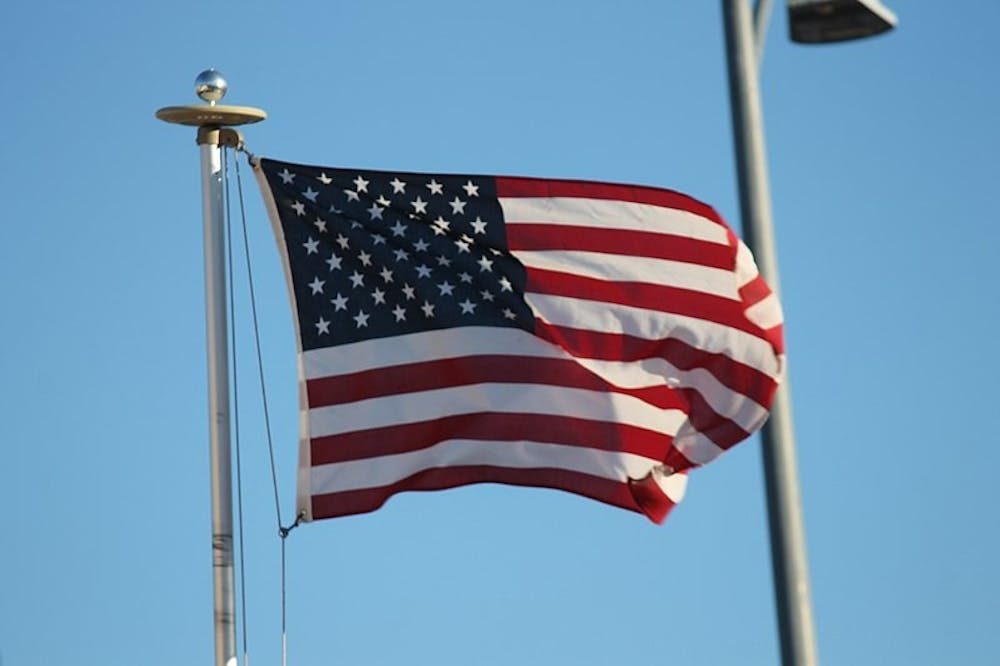中文版请点击此处
As we move through the second month of 2021, our country has a lot to reflect on. With over 28 million infections and 500,000 deaths, the United States has struggled more than any other country with the ongoing COVID-19 pandemic. In addition to having the largest number of reported cases and deaths, this past year has exposed the volatility of American politics. Our country recently witnessed an unprecedented attack on the Capitol Building — an event which will almost certainly be studied for decades to come — incited by none other than the former President Donald Trump. Prior to that, Trump had been traveling the country convincing his supporters — more than 80 percent of whom agreed — that the election was rigged. Before the election, COVID-19 had exposed America’s problem with racial and economic inequality, as low-income and non-white Americans have been hit the hardest. Furthermore, the pandemic has revealed our hyper-partisanship — there continues to remain a lack of consensus on how best to handle the crisis. While 2020 certainly revealed a lot, perhaps more than anything, it showed that it is time to get rid of the myth of American exceptionalism.
American exceptionalism is the idea that America is not just unique, but also inherently better than other countries. The idea is particularly popular within conservative circles, where the claim that “America is the greatest country on Earth” is seen more as a triumphant reaffirmation of what is already known than a statement subject to objective analysis. This attitude has become synonymous with supposedly patriotic thinking in America, and it stems from the fact that America was founded on Enlightenment principles, including the freedoms of speech, religion, self-governance and due process.
As Americans, we have a lot to be proud of when it comes to our country’s history, and in certain ways, America truly is exceptional. America was uniquely founded on a set of lofty ideals. However, throughout much of its history, these principles were denied to most Americians on the basis of race and sex. So while we can celebrate our country’s founding vision, we should not make the mistake of assuming that our country has ever fully lived up to these ideals. Even now, America is far from perfect, and we should be constantly fighting to ensure that America upholds its promises to everyone.
More importantly though, whether or not America is exceptional is a current — not historical — question. It may be true that America was exceptional compared to its peers 250 years ago, but that does not matter if the current reality is different — which it is. When it comes to what matters most — standard of living, life expectancy, self-reported happiness, incarceration rates, social mobility and even freedom itself — America is exceptionally unexceptional. America does not rank in the top ten for any of these, except for incarceration — where the U.S. unfortunately ranks first, largely due to its history of systemic racism. The failed response to the pandemic is yet another example of how America has failed to live up to its peers.
As Americans, there are two ways we can respond to this problem. The first is to stick our heads in the sand, denying that a problem exists and continuing to live with the delusory belief that our country will always be the best. This is the path American exceptionalists take, and it all but ensures that America will continue to do worse than its peers. The second response is to look objectively at the problems America faces and to deal with them accordingly. Doing so requires that we consider the possibility that America is currently not better than other countries.
Ironically, American exceptionalism is the greatest obstacle to America actually being exceptional. It fosters complacency rooted in ignorance, and it stifles the desire to create positive change. After all, if America is and always will be the best, then why bother to address its problems? Those who believe that America is the best country in the world are unlikely to be aware of the problems it faces and are therefore incapable of taking the proper steps to solve them.
Currently, it is considered patriotic to blindly cling to the notion that America is inherently superior to every other nation, but it really shouldn’t be. If patriotism is loving one’s country, then caring about one’s country enough to try to improve it is the most patriotic thing one can do. While it is comforting to believe that your country is inherently better, it is ultimately at odds with actually making this a reality. As Americans, we should love our country and fellow citizens enough to face the harsh reality that the U.S. has deeply-rooted flaws which currently prevent it from truly being the greatest country in the world. I believe that we can overcome these, provided that our country begins reckoning with its own faults and shortcomings.
Sam Mattingly is an Opinion Columnist for The Cavalier Daily. He can be reached at opinion@cavalierdaily.com.
The opinions expressed in this column are not necessarily those of The Cavalier Daily. Columns represent the views of the authors alone.







